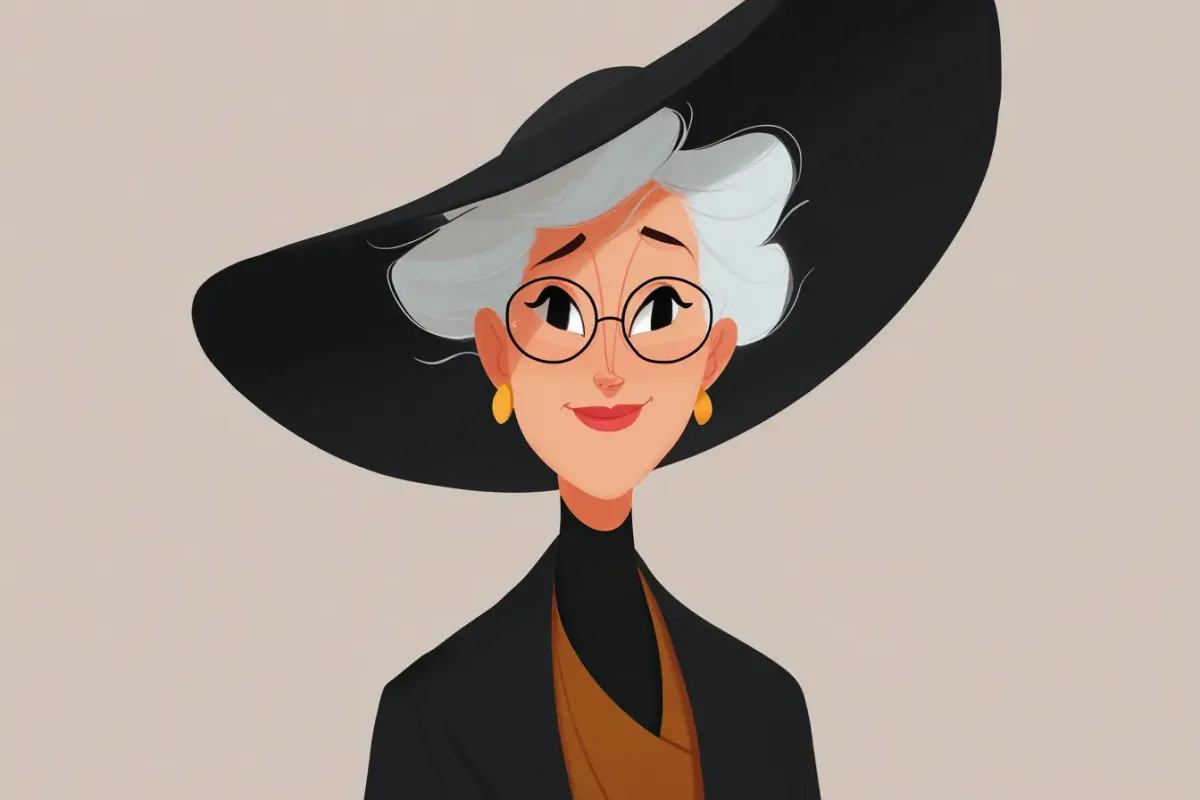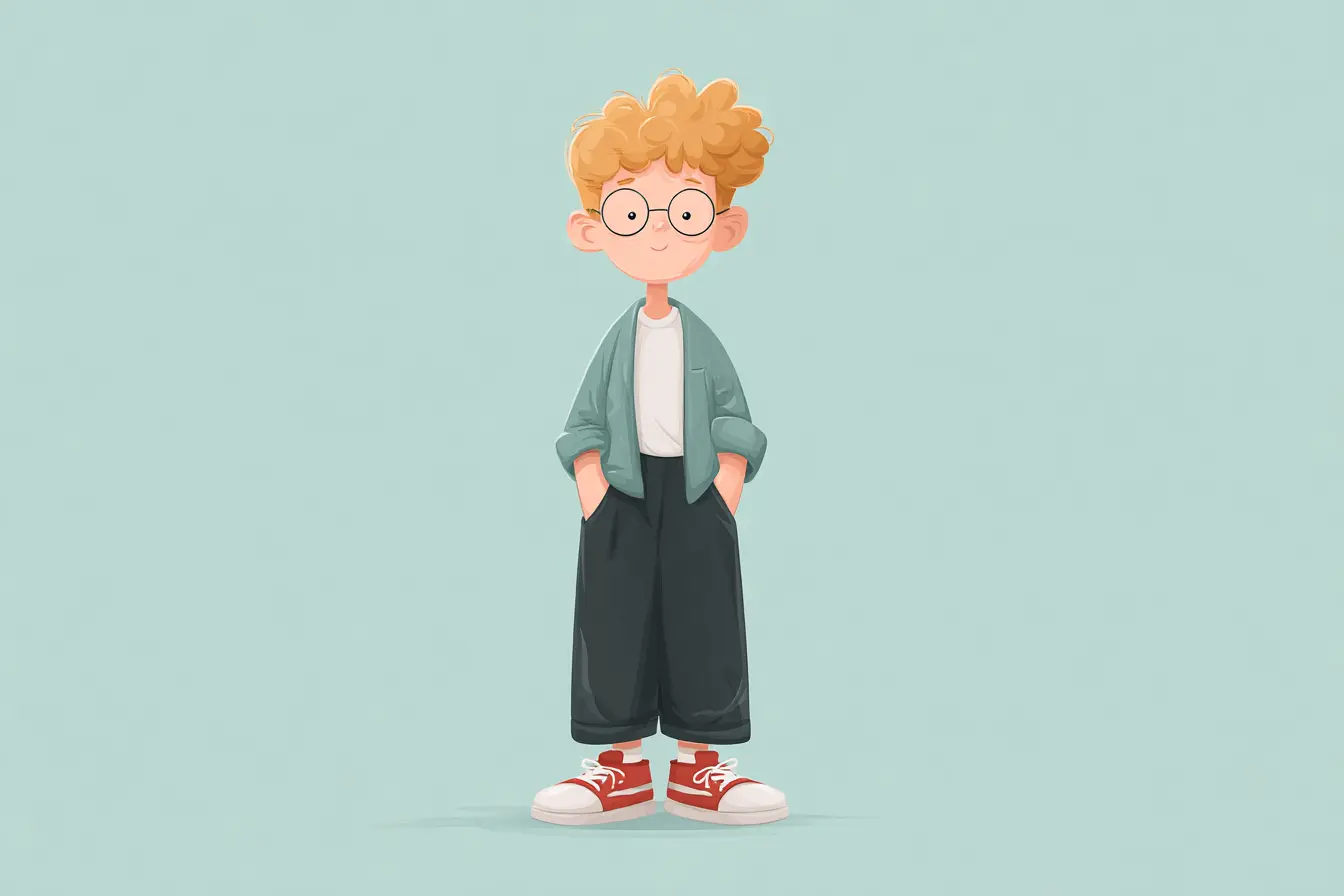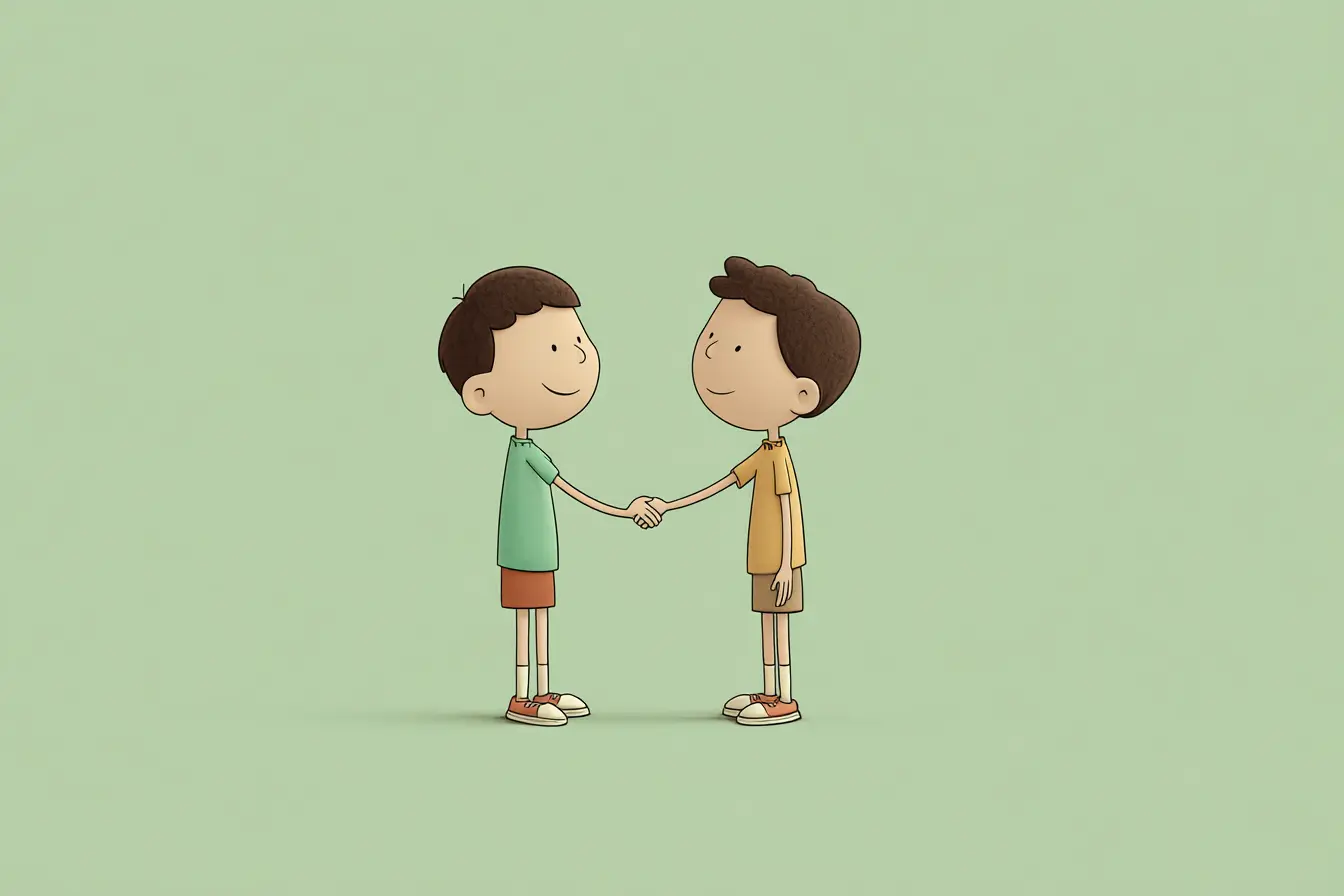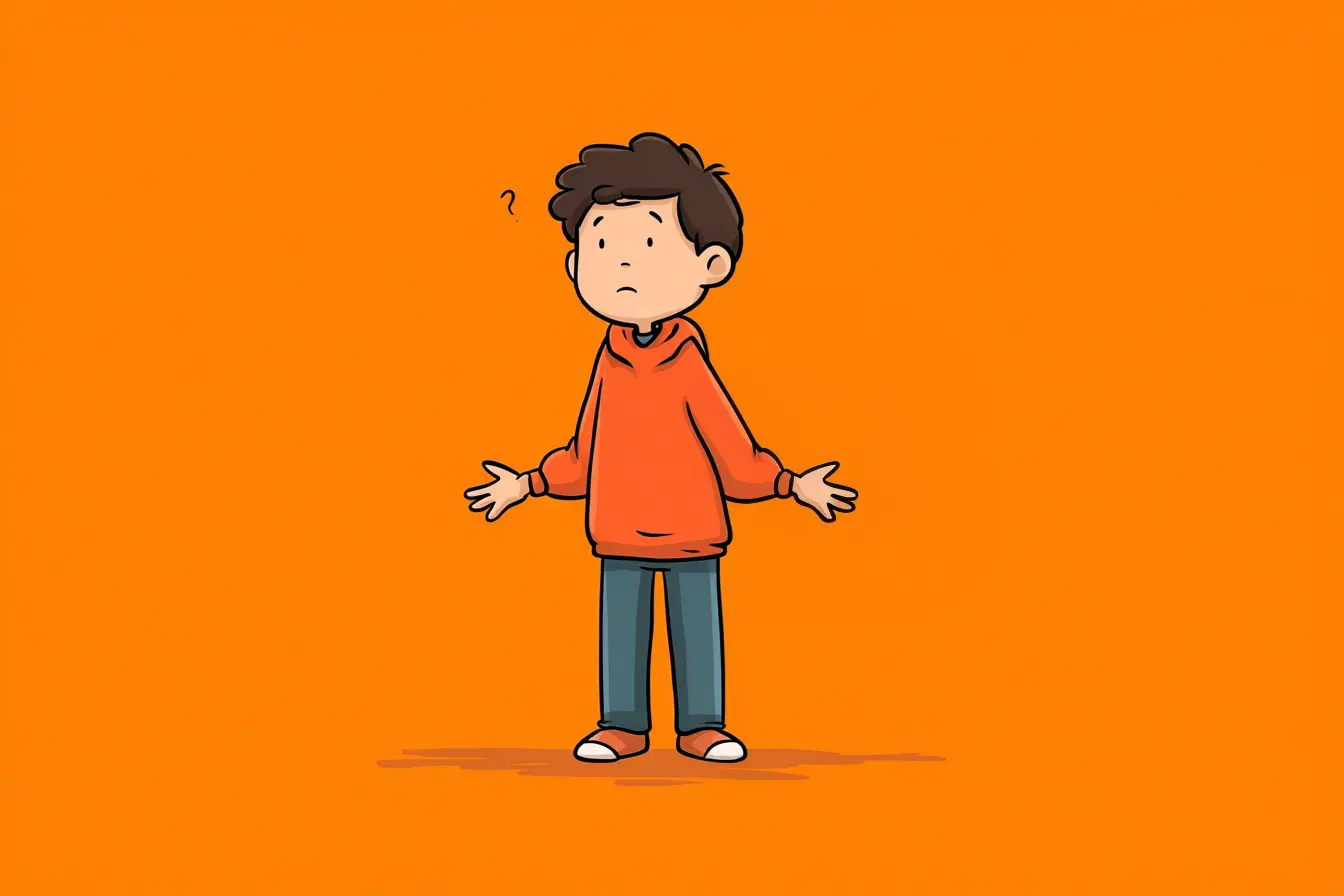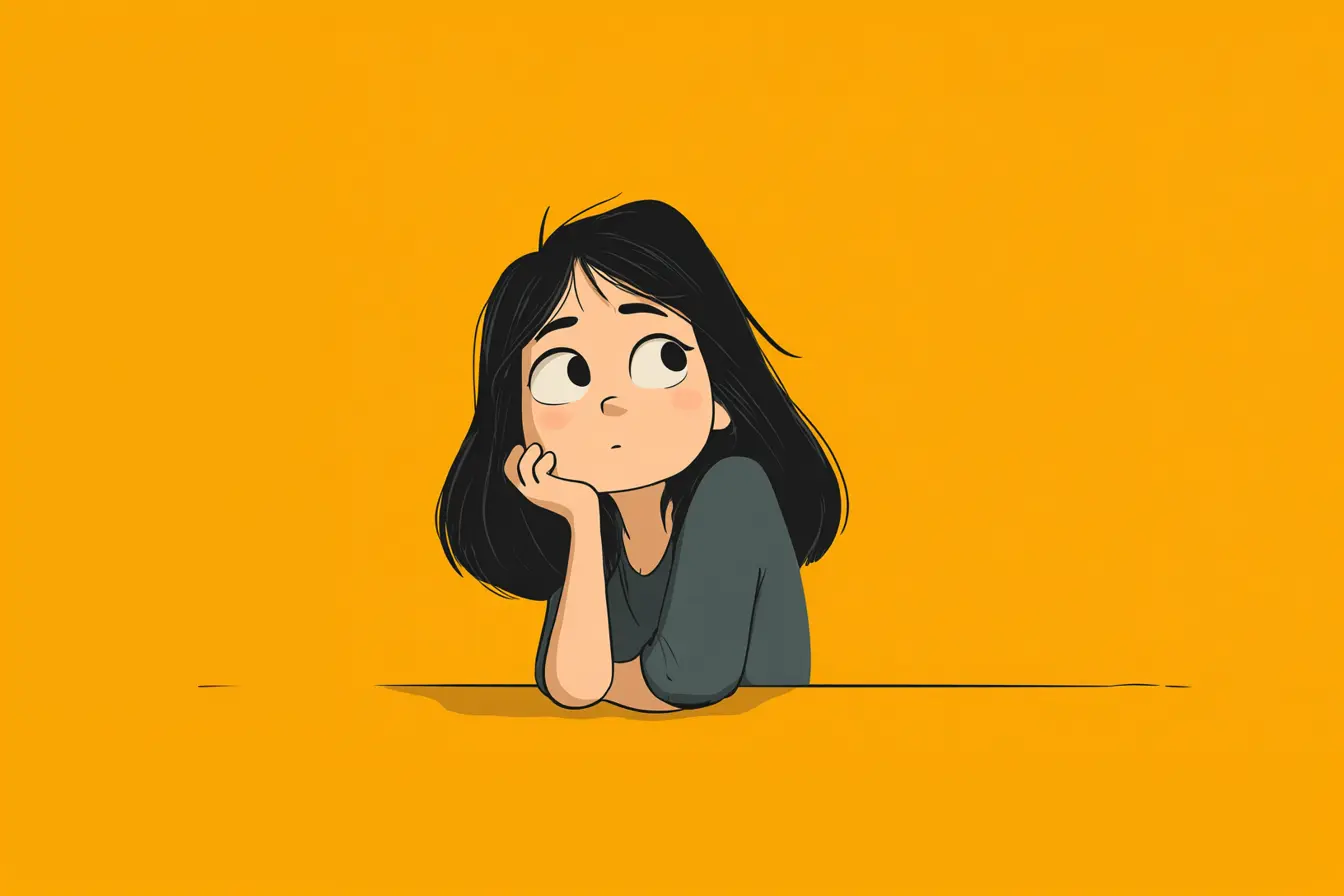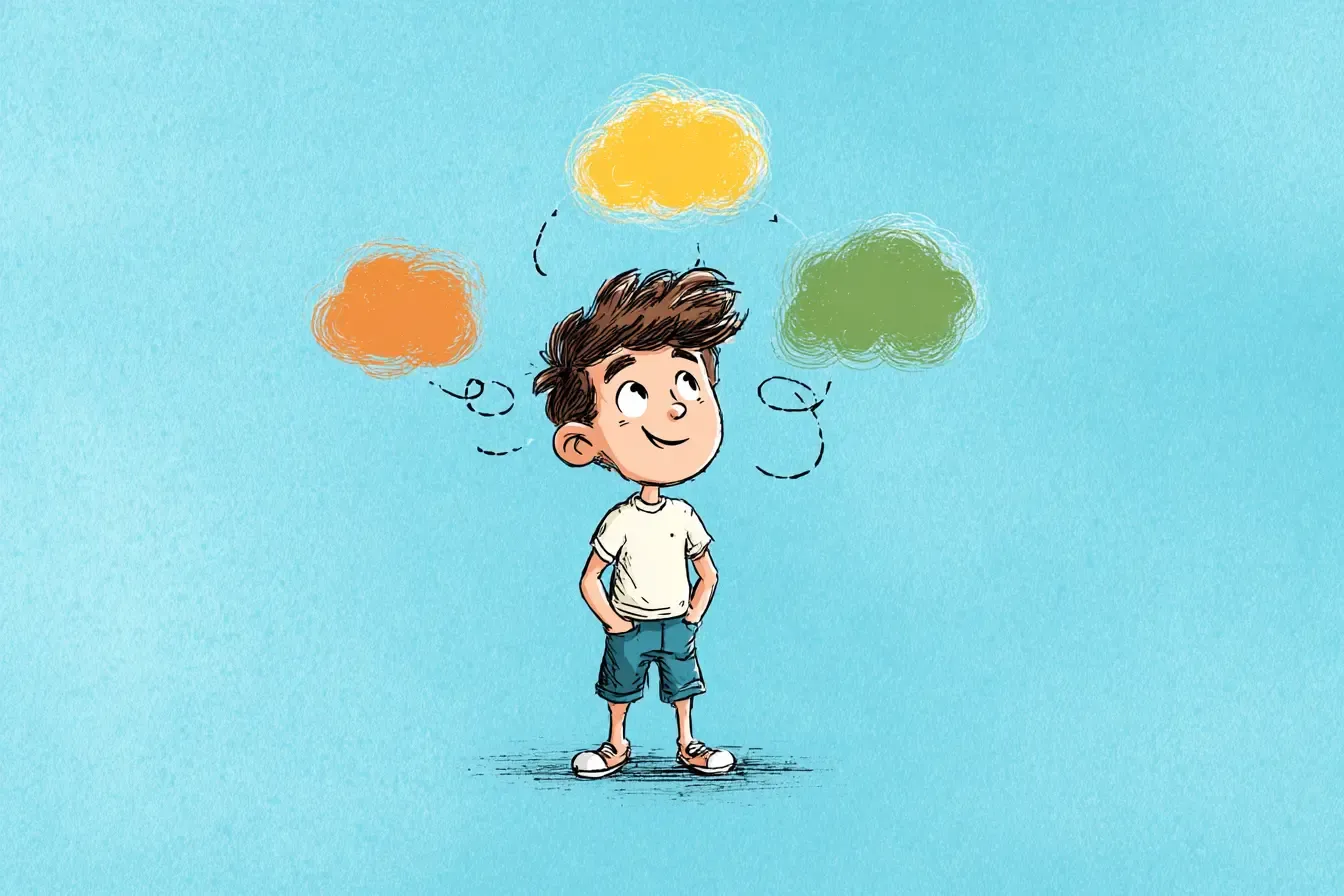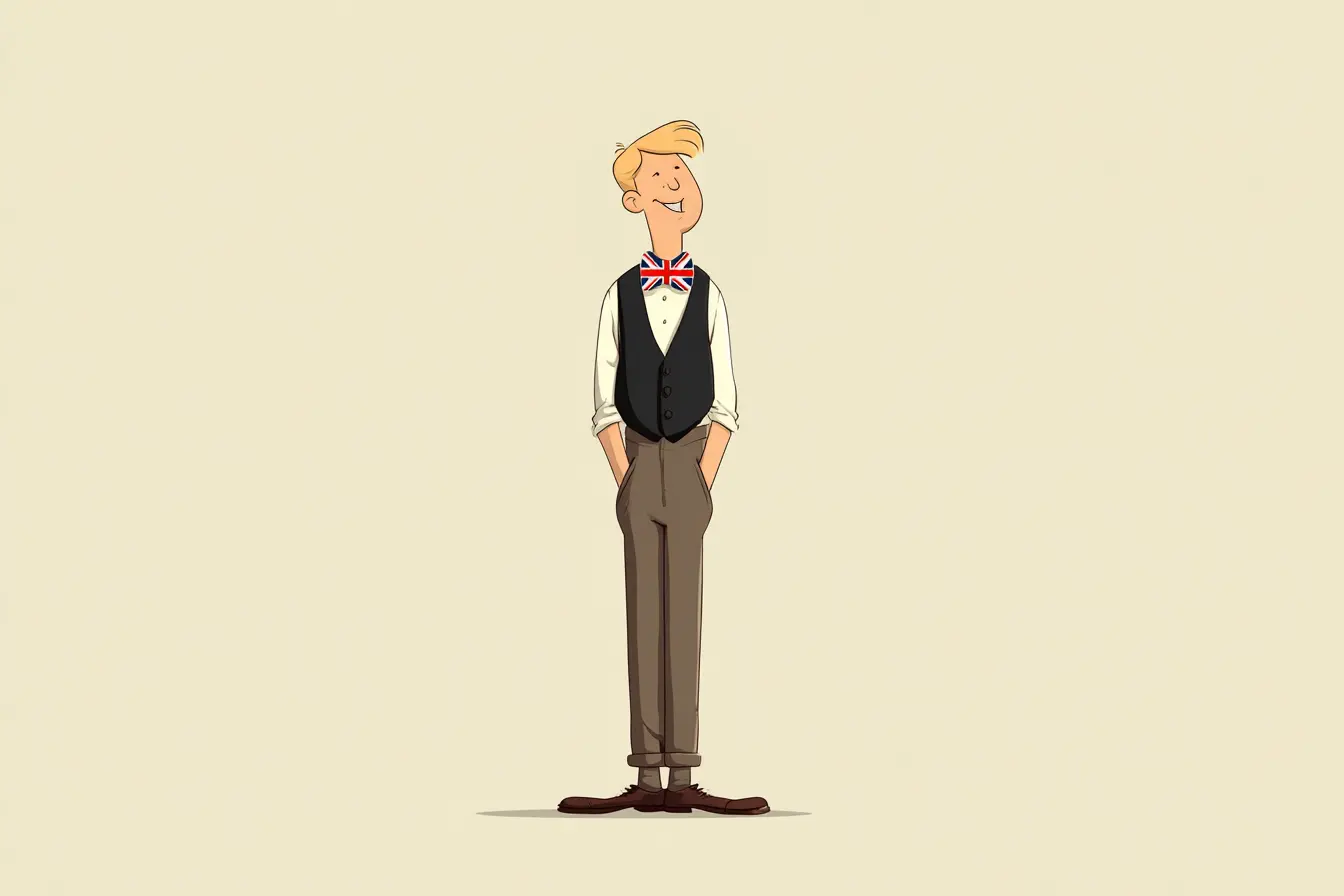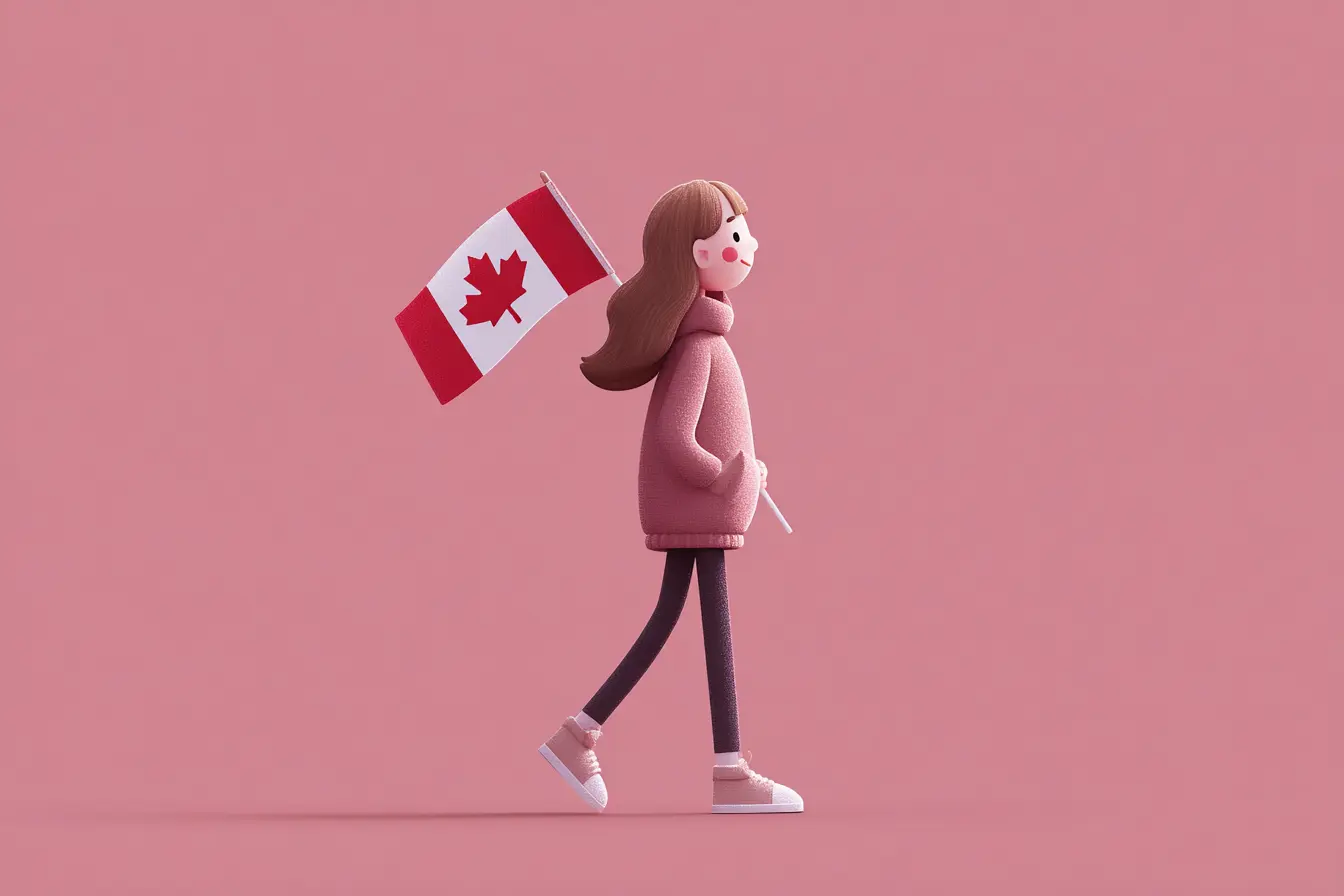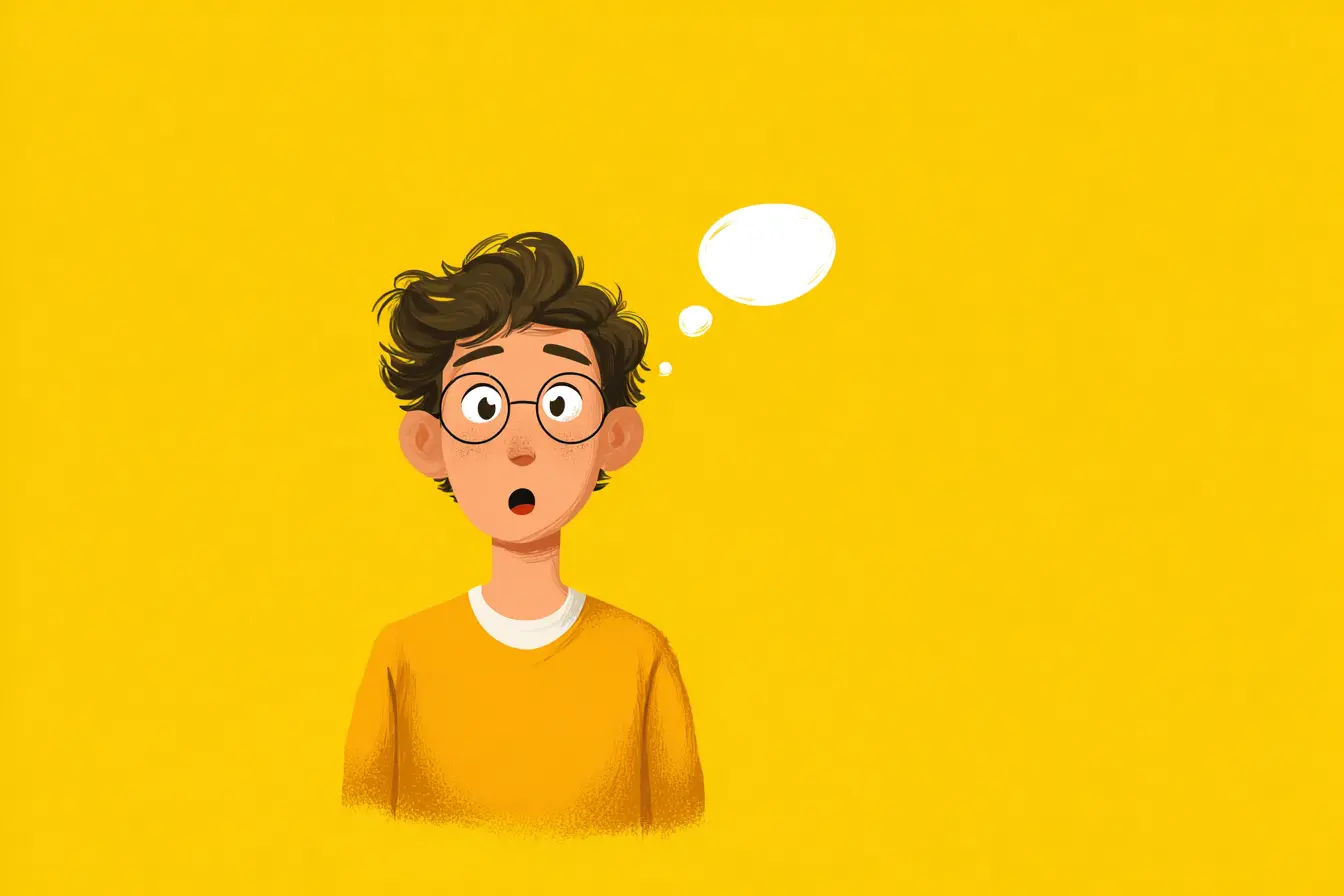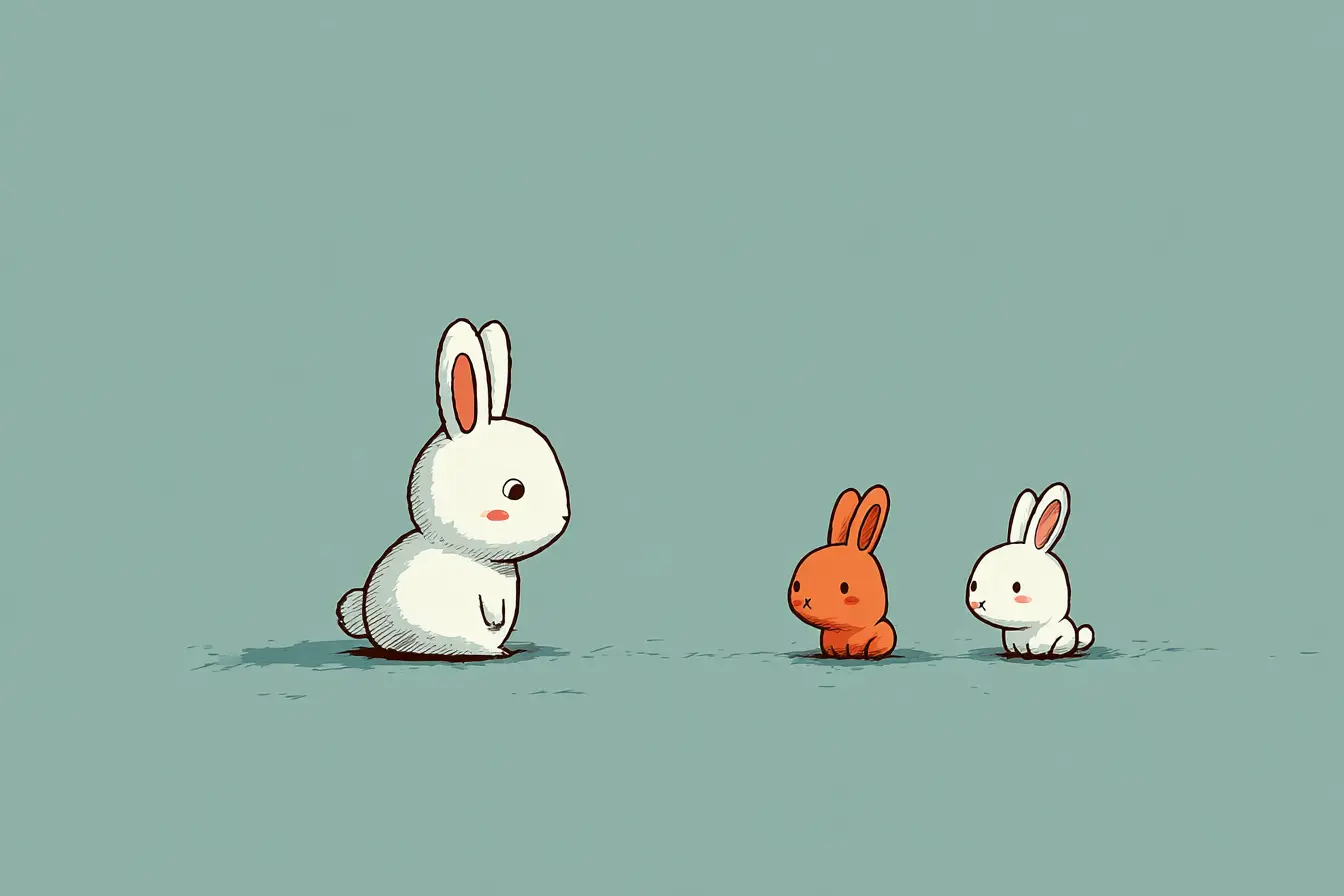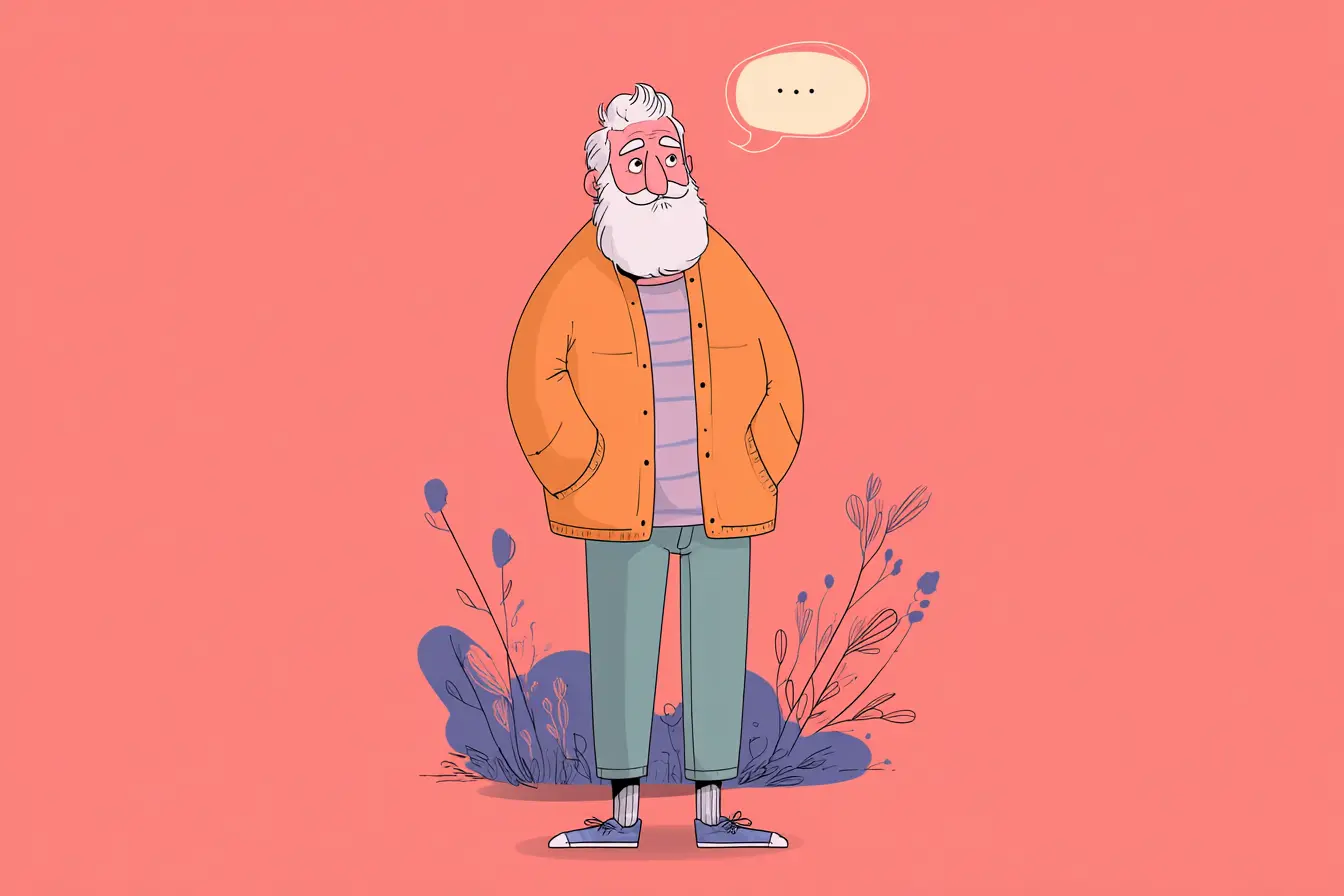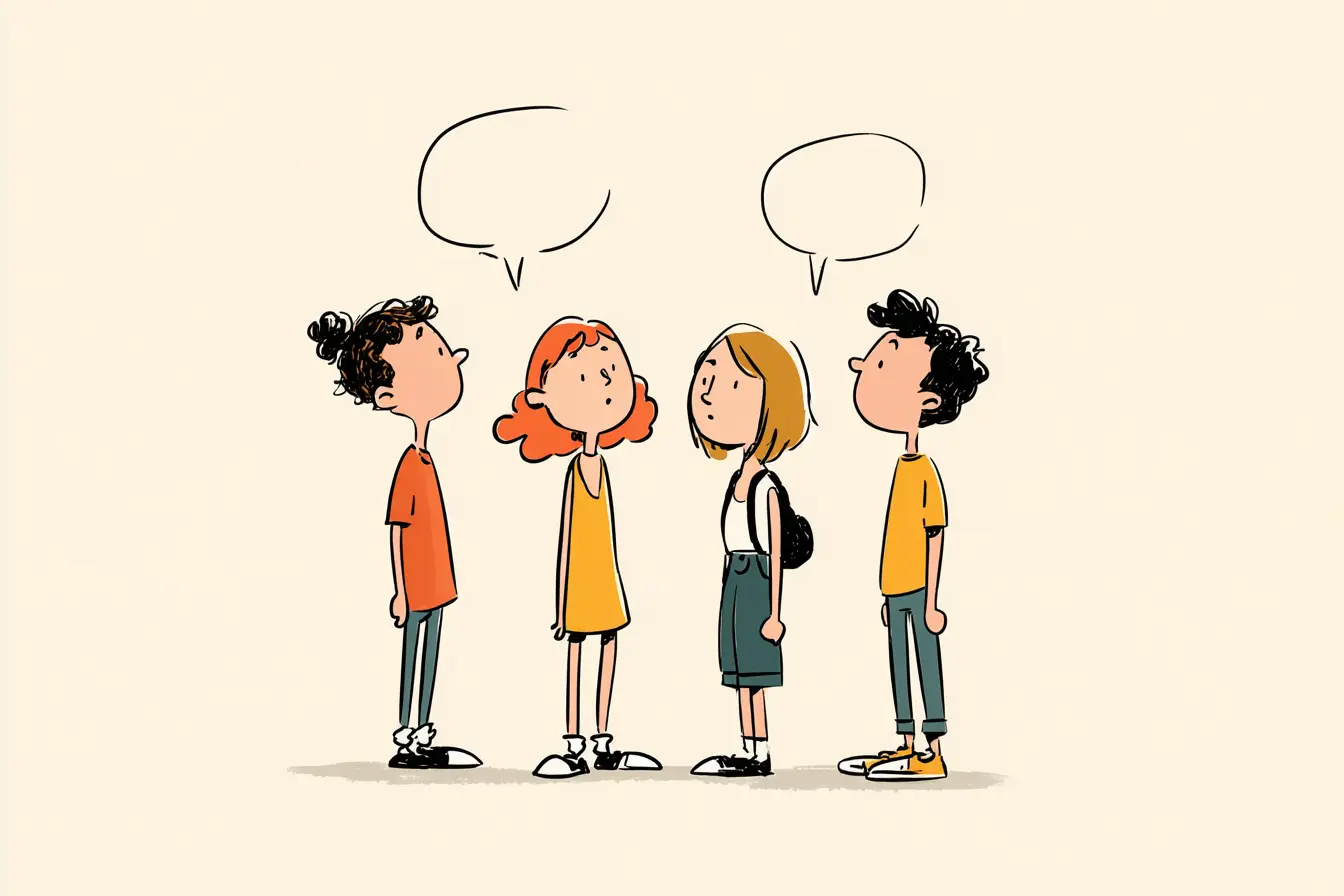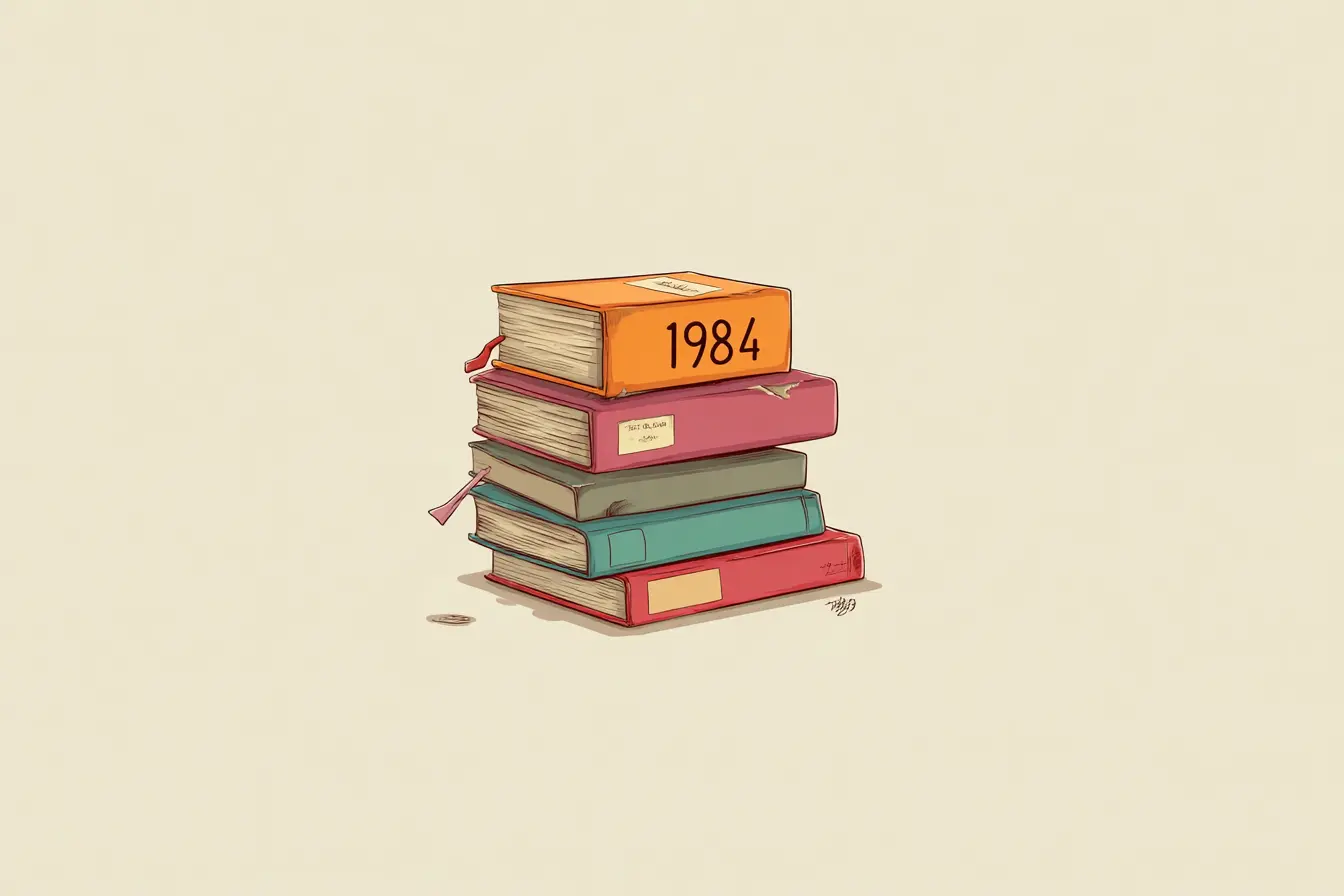Some words feel like they’ve stepped straight out of a dusty library in a Victorian manor. They carry the scent of parchment, candle wax, and a hint of mystery. These old-fashioned words and expressions might sound quaint, but they have a certain charm that modern slang can’t quite match.
And while many are relics of another century, plenty are still fun to use today, if you know how to work them into conversation without sounding like you’ve been trapped in a Jane Austen novel.
Why We Still Love Them
There’s something undeniably beautiful about words that have stood the test of time. They reflect history, culture, and the way people thought and spoke in earlier eras. Even if they’ve slipped out of daily conversation, they remain a window into another age, and sometimes they’re just more satisfying to say than their modern replacements.
For learners, sprinkling in some old English words or phrases can add style and personality to writing or speech. Think of it as wearing a vintage accessory: it’s not necessary, but it sure makes a statement.
A Stroll Through the Word Museum
Here’s a small exhibit of old English words with their meanings and examples to bring them to life.
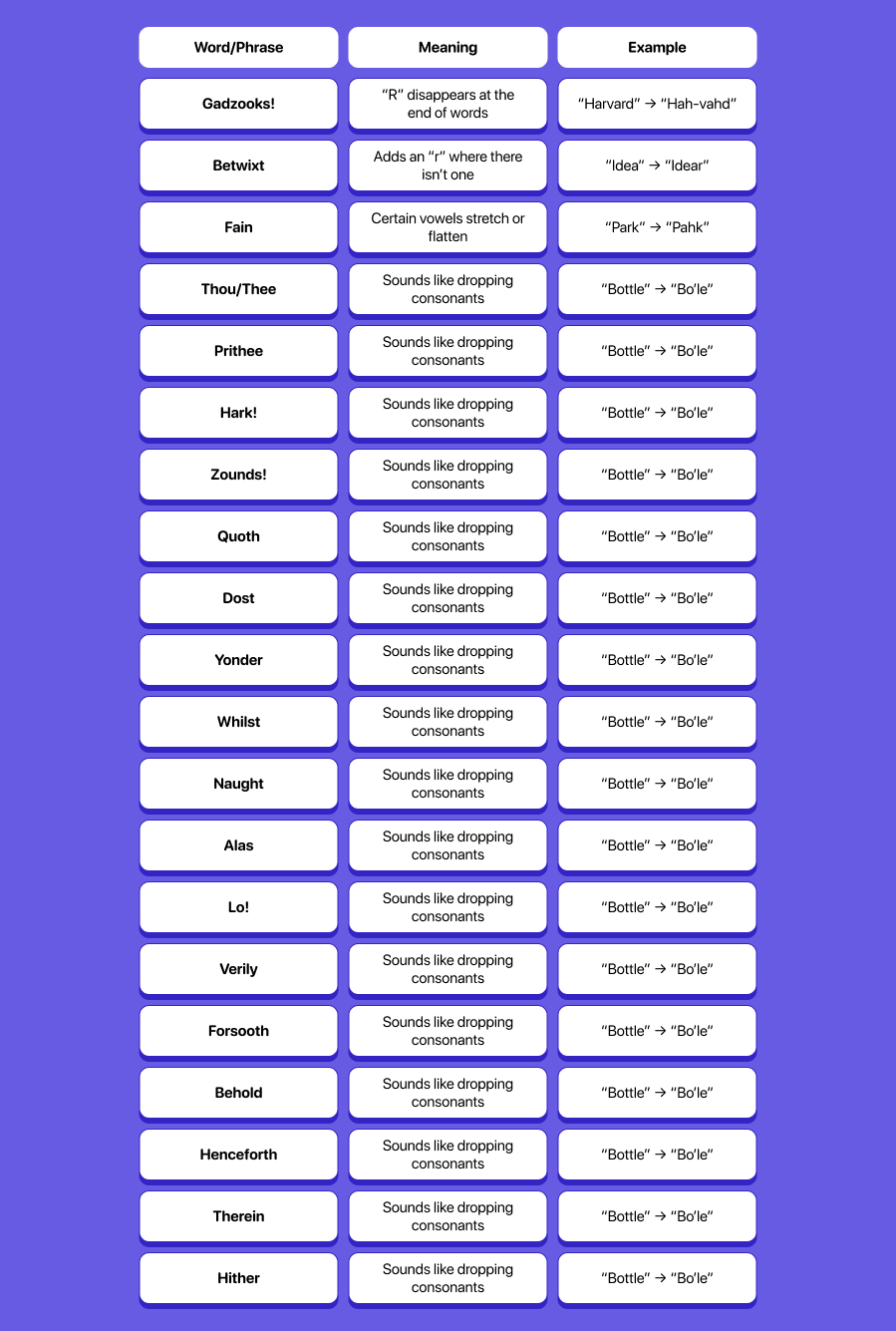
Old English Slang
Not all historic language was formal. There was old English slang too, cheeky, witty, and often very specific to social groups. For example:
- Gigglemug – Someone who is always smiling.
- Fopdoodle – A foolish or insignificant person.
- Bumbershoot – An umbrella (playful American slang in the 1800s).
- Clodhopper – A clumsy person, especially from the countryside.
- Coxcomb – A vain, self-absorbed man who’s overly concerned with appearance.
- Lickspittle – An overly flattering, sycophantic person (basically, a brown-noser).
- Ragamuffin – A person, often a child, wearing ragged or dirty clothes.
- Zozzled – Drunk, tipsy, or generally not walking straight.
- Flapdoodle – Nonsense; silly talk.
- Quockerwodger – A wooden puppet — or, figuratively, someone who’s easily controlled by others.
- Rumpscuttle – Old slang for playful or rowdy activity (sometimes with a naughty undertone).
- Buncombe – Empty, insincere political speech.
These might sound weird now, but imagine the fun of slipping “gigglemug” into your next conversation.
The “Olden” Appeal
In the olden days, language was less about speed and more about flourish. People took their classic expressions seriously, crafting sentences like fine furniture. That doesn’t mean these words should be locked away in a museum. In fact, bringing them back can make writing and speech richer, more playful, and more memorable.
How to Work Them Into Your Speech Without Sounding Like Shakespeare at a Party
- Pair them with modern language. “I was betwixt deadlines and coffee breaks all afternoon.”
- Use them for emphasis. “Gadzooks! That was the best pizza I’ve ever had.”
- Add them to creative writing. They instantly set a mood or historical tone.
- Teach them to friends. It’s more fun when you have someone to “hark!” with.
Words evolve, but they never truly vanish. Even if they’re no longer in the mainstream, these ancient English words still spark curiosity and sometimes laughter. Next time you’re looking for just the right touch of elegance, humor, or drama, borrow from the past. After all, the old English terms and vocabulary of yesterday might just be the quirky treasures of tomorrow.


